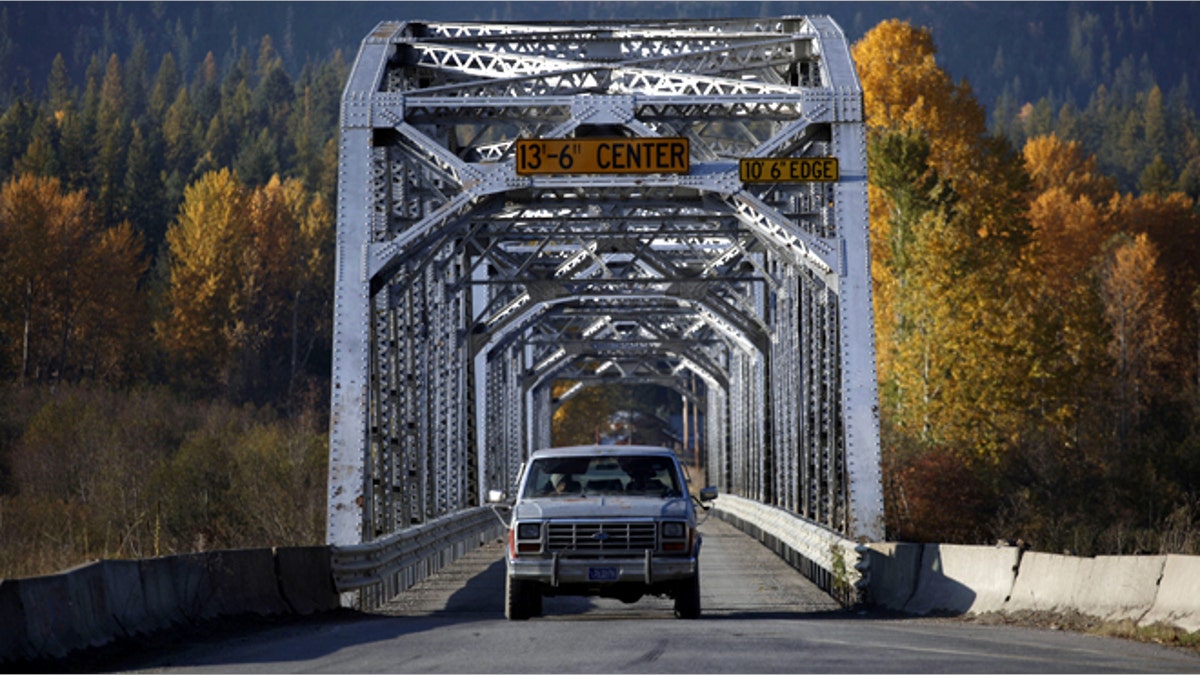
A truck is driven across a one-lane bridge across the Clark Fork River in Noxon, Montana. (REUTERS)
This month Montana will legalize the harvest of roadkilled deer, elk, antelope, or moose struck in car accidents. The buzzards aren’t happy, but people should be.
Currently about two-thirds of states prohibit harvesting roadkill.
Allowing people to harvest what they accidentally kill could help salvage millions of pounds of otherwise wasted meat.
It provides a leaner alternative to factory-raised meat.
It is also highly ethical since the wild animals were killed accidentally and never subjected to potentially brutal factory farming practices like extreme confinement, debeaking without anesthesia and painful transportation in jam-packet trucks.
[pullquote]
It will help to further reinforce the reality that meat does not come shrink-wrapped in grocery stores, but from a live animal that gave up its life. Allowing the meat to be consumed, rather than rot on roadways, also demonstrates a greater respect for animal life.
Even PETA agrees that road kill is superior to factory meat, stating on its website: “Eating roadkill is healthier for the consumer than meat laden with antibiotics … It is also more humane in that animals killed on the road … did not suffer the trauma and misery” of factory farming.
Who knew that road kill could unify hunters and PETA!
According to the National Highway Safety administration there are about 1 million deer-related car accidents each year. Other estimates place it at closer to 1.5 million. An average deer will yield about 50 pounds of meat. That is potentially 50 million pounds of venison that could be eaten.
An estimated 18 or so states permit some form of roadkill harvest with laws varying widely, from mere reporting requirements to more cumbersome permit application procedures. This means most of the nation including states like Texas, Washington, Tennessee and California generally prohibit salvaging roadkill.
In terms of health concerns, according to Food Safety News, roadkill is similar to eating animals killed by hunting. So long as the meat is fresh, and cooked properly to kill bacteria, there are no additional risks. Wild meat has less fat and is generally healthier than hormone injected factory farm raised meat.
The roadkill meat can also go to food banks to help feed the hungry. In 2010, for example, hunters provided nearly 2.8 million pounds of game meat to shelters, food banks and church kitchens, providing 11 million meals to the less fortunate. Some states already have programs that utilize roadkill to feed the hungry.
All laws are subject to abuse and fraud. Givens the extensive damage to cars, risk to life, and increased insurance premiums that accompany collisions, it is unlikely that people will intentionally ram into animals just to harvest the meat. Reporting requirements, investigations where necessary, will further reduce the instances of potential abuse by motorist poachers.
Bottom line: Every state should allow roadkill harvest. The meat is healthier than the antibiotics, hormones, growth stimulants and fat in our chicken nuggets and burgers.
The harvest is highly ethical since the animals never suffered in captivity. Waste will be reduced. Animal life will be accorded the respect it deserves. It will compel people to appreciate that the animals give their lives to sustain us and don't come shrink-wrapped from grocery stores.








































